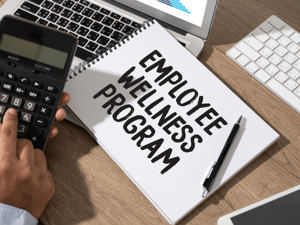Our previous blog post explored the "E" in ESG, which stands for “Environmental.” This time, we will focus on the "S," which stands for “Social,” and how this dimension of ESG reporting is measured. Measuring social impact is one way for companies to communicate their impacts and contributions to society, be accountable to stakeholders, and confirm they are within regulatory expectations—all of which contribute to the long-term sustainability of an organization.
Sections of “S”
The "S" in ESG stands for Social responsibility and refers to a company's commitment to positively impacting society on various scales, from consumers to communities close to facilities to employees. A positive social score considers a wide range of factors, including:
- Enforcement of workplace safety (i.e., Occupational Safety and Health Administration (OSHA) in the United States)
- Prohibition of human trafficking (including slavery, forced labor, and child labor)
- Providing living wages, reasonable work hours, and benefits to employees
- Assuring consumer well-being
- Developing and maintaining relationships with communities

Assessing a Socially Responsible Company
Safe workplaces are a fundamental aspect of social responsibility as they directly impact the well-being of employees and the broader community. This also follows the concept that employees should feel they are equipped with the resources needed to perform their work safely. Ensuring workers' health and safety reflects ethical practices and promotes social stability and trust within the corporate structure. Companies prioritizing occupational health and safety are committed to safeguarding their workforce and fostering a more resilient and socially responsible corporate environment. Some countries have a federal regulatory group that sets occupational health and safety standards, like the OSHA in the United States.
According to the National Human Trafficking Hotline and research conducted by the International Labour Office, over 40 million people were victims of modern slavery on any given day in 2016, including 25 million people living in forced labor conditions.[1] Companies must be aware of this harrowing number and be adamant that their production lines and facilities are not contributing to this humanitarian issue. To do so, a company must look beyond their direct operations and ensure brands across its supply chain do not engage in labor trafficking of any kind.
Measuring Social Responsibility
Measuring social responsibility is a complex task due to the subjective nature of many of these factors. In response, many companies rely on third parties to collect and evaluate data and identify opportunities for growth in the coming years. Nevertheless, various frameworks, standards, and metrics have been developed to assess a company's social performance:
- Community Engagement
A socially responsible company should actively engage with the local community and contribute to its well-being. This often includes philanthropic activities, support for local causes, and community development initiatives. Metrics for community engagement can include contributions to local organizations, volunteer hours, and impact on local economies. - EEO-1 Reports or Similar Reports
The Equal Employment Opportunity Commission (EEOC) requires certain companies to submit annual EEO-1 reports detailing workforce demographic data in the United States. These reports are instrumental in evaluating diversity and inclusion efforts within a company. EEO-1 reports, or reports that convey similar diversity and inclusion efforts, can be used to evaluate a company's social impact. - Human Rights Assessments
Companies operating in sensitive industries (i.e., mining, agriculture, forestry, fishing, quarrying, and general manufacturing) often undergo human rights assessments to ensure that they, as a company internally, and their contractors and/or supply chains adhere to international human rights standards. It is important to note that the California Transparency in Supply Chains Act mandates such an assessment in certain jurisdictions, such as California. - Community Impact Metrics
Companies involved in community outreach and philanthropic activities may report on the impact of their contributions on economic development, education, healthcare, and other social factors. - Ethical Supply Chain Audits
Companies that source products globally may conduct ethical supply chain audits to ensure suppliers uphold human rights and labor standards. - Employee Satisfaction Surveys
Regular employee surveys provide insights into workplace satisfaction, engagement, and well-being, which are key indicators of a company's treatment of its employees. - Occupational Health and Safety and Employee Wellness
Evaluating yearly reports on a company's commitment to health, safety, and wellness is a critical component of the social part of ESG reporting. These reports may have information about employee injuries at work, near-miss situations encountered on the job, and the programs provided to employees to promote their wellness within and outside the workplace.
- Customer Feedback
Monitoring customer satisfaction and feedback through surveys, online reviews, and complaint records helps assess product quality, ethical marketing, and customer relations. - Social Impact Assessments
Companies may conduct social impact assessments for specific projects to measure their effect on local communities and identify potential negative consequences.
In conclusion, Social responsibility is a difficult yet extremely valuable measure to perform as it focuses on a company's impact on society, employees, customers, and communities. Measuring social responsibility is essential, and various tools, standards, and reports can provide consultants internally or externally the information needed to assess a company's performance as a steward of positive social impact. We have now explored the “E” and “S” components of ESG, which are crucial to ensuring that businesses are both environmentally, ethically and socially responsible, creating a more sustainable and equitable world. Learn more about BBJ Group’s ability to measure social impact here. Stay tuned for the next installment in our ESG series, where we will explore the "G" - Corporate Governance.




